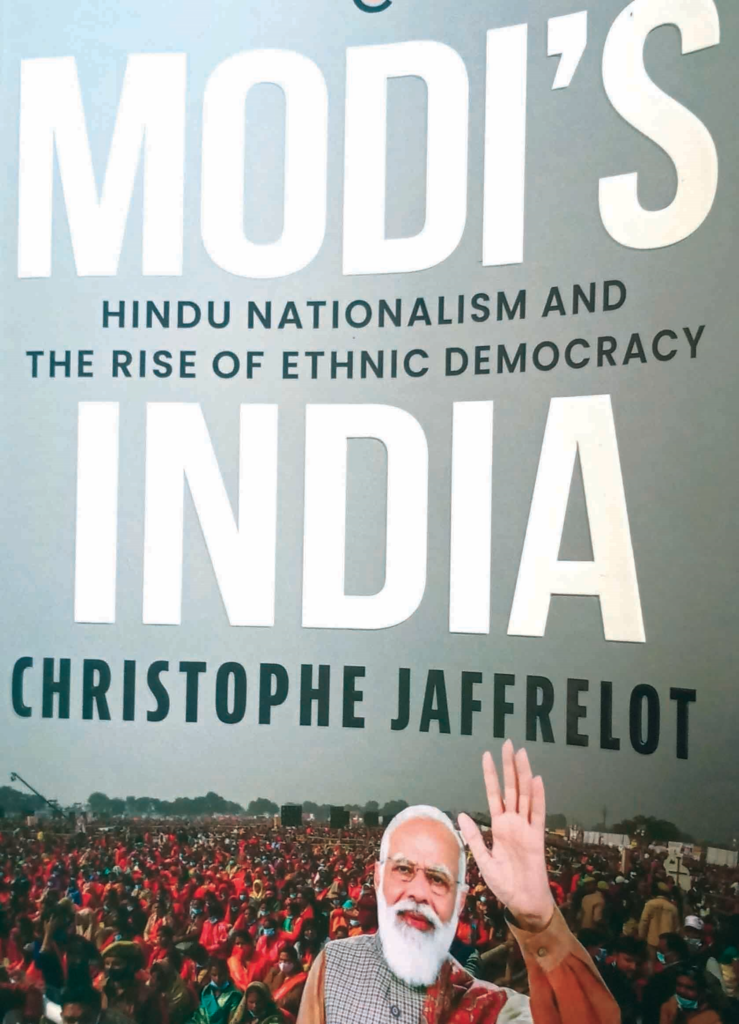The past decade under Prime Minister Narendra Modi has inflicted deep wounds on India’s democratic institutions. These very institutions, responsible for upholding citizens’ constitutional rights and ensuring justice, have been transformed into instruments of state repression. Through intimidation and misuse of laws, the Modi government has sought to silence all kinds of public dissent. The core objective of these actions appears to be the transformation of India from a secular democracy to an ethnic democracy.
Instead of viewing all citizens as equals, the government has prioritized the rights of a specific community, marginalizing others and branding them as traitors or second-class citizens. This approach seems to be inspired by Israel, a nation often cited for its problematic ethnic nationalism. Notably, Modi’s government has achieved this not through brute military force, but by manipulating the very structures of democracy.
Every pillar of democracy, from the judiciary to the Election Commission, has been subjected to undue influence. Simultaneously, vigilante groups affiliated with the ruling party have been given free rein to commit violence and murder, defying all legal constraints. The bulldozers of authoritarianism have ruthlessly crushed the lives and property of innocent citizens. And always, the primary target was the Muslim community.
There have been numerous deliberate attempts to marginalize the Muslim minority through discriminatory legislations or amendments to the existing laws. Examples include the revocation of Triple Talaq, the Babri Masjid verdict, the Citizenship Amendment Act, and the push for a Uniform Civil Code. Activists and leaders who raised their voices against these policies were branded as traitors, terrorists, or “Urban Naxals” – a term used to demonize left-wing activists.
Christophe Jaffrelot’s book, “Modi’s India: Hindu Nationalism and the Rise of Ethnic Democracy,” delves deep into the details of Modi’s attempts to transform India into an ethnic democracy. Jaffrelot, a French Indologist and prolific author, has closely observed India’s socio-political landscape for over four decades. He draws parallels between the methods employed by Hindutva forces and Israeli Zionists, highlighting the use of hate speech, societal militarization, fake news propaganda, and discriminatory laws.
While Israel’s ethnic democracy is de jure India remains a constitutionally secular democracy. However, many fear that the ruling party may attempt to rewrite the constitution in the future, paving the way for a Hindu supremacist state.
The close friendship between Modi and Benjamin Netanyahu, coupled with the BJP government’s “bulldozer justice,” is seen as a worrying sign by many. Jaffrelot himself, in a recent interview, pointed out the disturbing similarities between the rhetoric of Modi and Netanyahu, who has been accused of dehumanizing Palestinians. The book even mentions a Bajrang Dal leader stating, “I am of the secret service of Bajrang Dal. Israel’s Mossad is my inspiration.”
Over the past decade, there have been numerous calculated attempts to rewrite history textbooks, intimidate media outlets, and silence civil society groups, all with the aim of creating a pro-ethnic state narrative that demonizes Muslims. Prime Minister Modi’s continuous stream of Islamophobic statements during election campaigns, met with silence from the Election Commission, serves as a prime example of this tactic.
If the 2024 general election grants Modi a third term, the future of India as a secular democracy hangs in the balance. Even if INDIA bloc comes to power, it will likely take years of effort to heal the wounds inflicted on democratic institutions by the Modi regime. June 4th, the date of the upcoming election result, could therefore be a pivotal moment in the history of independent India.
